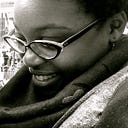Member-only story
We Weren’t Supposed to Win

13 years ago this December, Benazir Bhutto — former Prime Minister of Pakistan, and candidate for the same office again at that time — was assassinated. I remember the day of the event so clearly because my entire family and I were vacationing together at Lake Malawi for Christmas, on what would turn out to be the last vacation we would all be on together for many years. Dad liked having the news on in the background all day at the cottage; it was his way of staying as connected to what was going on in the world while technically being able to claim that he was, indeed, on vacation. When that fateful, fatal, explosion happened, the event immediately became round-the-clock news on all the networks — her final moments waving at the crowds around her from the sun roof of her car, then that terrible burst of light and fire of the explosion itself, later the somber retellings of what would eventually be confirmed as an assassination.
I was 23 years old at the time, feeling both demoralized and unmotivated by seemingly everything in my life at the time. I’d graduated college the year before, but couldn’t seem to find my direction; more than that, though, I wasn’t sure what the point of trying particularly hard to find it was. In my teens and 20s my father had gone through what might be called a conspiracy theory phase now: he spent a lot of time at dinners and on long drives telling us that who we thought were in control of the world were not, in fact, who were running things, and both gave and quizzed us on a boatload of reading material on the same topic. By the time I graduated college, then, I wasn’t sure what the point of endeavoring toward anything at all was, if there were indeed large and invisible forces who were actually pulling the strings around us, who were working hard to ensure we all just fell in line, and who would thwart any efforts we made to write our own stories.
And then Benazir Bhutto was killed.
Why did that event make such an impact on me that December? I think, primarily, it was because she was one of my earliest models of a woman elected to the highest echelons of power. I read and studied the daily newspapers in Malawi avidly as an adolescent — surprising absolutely no-one, I’m sure — and I remember seeing her picture regularly in our newspapers in Malawi in the World News sections. I privately marveled…
